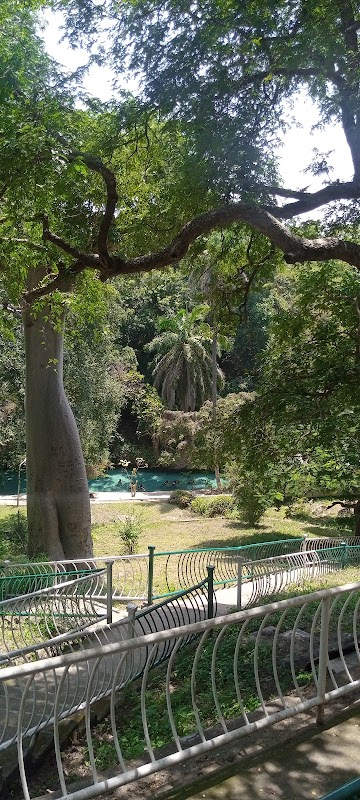
Discover the Durbar Festival in Bauchi, Nigeria—an electrifying display of horsemanship and Hausa culture that transforms the city’s streets into a grand arena of tradition and thrill. Perfect for adventurers eager to experience vibrant celebrations grounded in fierce skill and history.
Wear Durable Footwear
Expect cobblestone paths and packed earth surfaces; sturdy, comfortable shoes will keep you steady as you navigate crowded streets.
Hydrate Frequently
The Nigerian sun is intense, especially around midday—carry sufficient water and take regular breaks to avoid dehydration.
Plan for Crowd Navigation
Move intentionally through festival crowds, keeping valuables secure and patience ready to engage with the bustling atmosphere safely.
Arrive Early for Key Events
The best horse displays happen early in the day; arriving early ensures access to prime viewing spots and less congestion.
Experience the Thrill and Tradition of Durbar Festival in Bauchi, Nigeria
Each year, as the sun climbs high over Bauchi’s vibrant skyline, the city pulses with the steady drumbeat of the Durbar Festival, a spectacle both fierce and celebratory. This event, rooted deeply in Hausa culture, transforms Bauchi’s open spaces into arenas of pride where horsemen clad in elaborate armor charge forward with precise elegance. Here, the horses become fierce partners, muscles straining and hooves pounding the earth in rhythmic challenge, daring any to match their speed and grace.
The Durbar Festival is both a cultural display and an adventure of its own kind, set against the rugged backdrop of Northern Nigeria. Bauchi riders gather from dawn to dusk, riding from the emir’s palace through the streets, their colorful banners fluttering like flags in battle, and their cries mingling with the clatter of hooves. The terrain of the festival includes cobblestone pathways and open parks, offering a solid but sometimes uneven ground that tests balance and horsemanship rather than sheer endurance. While not a hike in the traditional sense, observers venture through these streets on foot, weaving through crowds and vibrant stalls, feeling the pulse of tradition and adrenaline collide.
To fully experience the Durbar, timing is crucial. The best moment is during Eid celebrations, typically in April and June, when the festival peaks and the atmosphere swells with collective excitement. Walking the festival’s route requires sturdy footwear—expect cobbles, patches of dry earth, and tightly packed crowds pushing forward like a river demanding your attention. Staying hydrated is vital; the Nigerian sun can assert its fierce presence without warning, making water breaks non-negotiable.
The festival’s essence is in its dynamic interplay: horses and riders fiercely engaging with their shared heritage, the crowd eagerly absorbing the spectacle, and the vibrant marketplace offering tastes and crafts that ground the experience in place and time. Visitors will find their senses stirred by the glare of steel, the beat of drums, and the burst of Yoruba and Hausa voices telling stories that the dust on the road itself seems to whisper.
For travelers, the adventure isn’t just watching but moving with the rhythm—navigating through the crowds, seeking those hidden vantage points where the horses’ full power and precision are revealed. The festival is an exhilarating plunge into a world where history, sport, and celebration are fiercely alive. Planning your visit means anticipating a full sensory engagement: sun protection, comfortable walking shoes, and a spirit ready to respect tradition while capturing every powerful moment.
Nearby Trips
All Adventures
Boat Charters
Water Activities
Adventures near Bauchi, Nigeria
Discover the unique and memorable adventures that make Bauchi, Nigeria special.
Frequently Asked Questions
What is the historical significance of the Durbar Festival?
The Durbar Festival commemorates the arrival of Muslim rulers who used horse cavalry in northern Nigeria. It also marks religious celebrations like Eid and showcases the military skill and cultural traditions of the Hausa people.
How can I find the best viewing spots for the festival’s horse parades?
Arriving early near the emir’s palace or along major parade routes provides better vantage points. The open squares offer an unobstructed view of the riders and horses.
Are there any safety concerns for visitors during the festival?
While the festival is generally safe, large crowds require vigilance. Keep personal belongings close, wear comfortable shoes, and avoid standing too close to the horses to prevent accidents.
Can I interact with the riders or horses during the Durbar Festival?
Interaction is limited during the parade for safety reasons, but local markets and festival grounds often allow opportunities to meet artisans and learn about horse adornments after events.
What wildlife might I encounter around Bauchi during this time?
While primarily urban during the festival, the outskirts of Bauchi harbor bird species like the Sahel bush sparrow and the roadrunner, as well as small mammals that inhabit dry savannah areas.
Is photography allowed during the Durbar Festival?
Photography is encouraged, especially of the vibrant costumes and horses. However, always respect locals’ privacy and avoid flash photography near the horses as it may startle them.
Recommended Gear
Comfortable Walking Shoes
Sturdy shoes will protect your feet on uneven cobbles and packed dirt paths.
Sun Protection Gear
Broad-brimmed hats and sunscreen guard against prolonged sun exposure.
Small Backpack or Waist Pack
Keep water, essentials, and a camera secure and easily accessible.
Portable Water Bottle
Hydration is crucial; carry refillable water to stay refreshed in hot weather.
Local Insights
Hidden Gems
- "The old city walls of Bauchi, offering panoramic views of festival parades from an elevated position"
- "Local craft markets where artisans display traditional horse tack and leatherwork"
Wildlife
- "Savannah birds like the African hoopoe and various raptors frequent the nearby outskirts"
- "Occasional sightings of desert hares in less crowded areas"
History
"The Durbar traces to centuries-old traditions celebrating Islamic festivals and the legacy of northern Nigerian emirs, blending ceremonial display with military parades."
